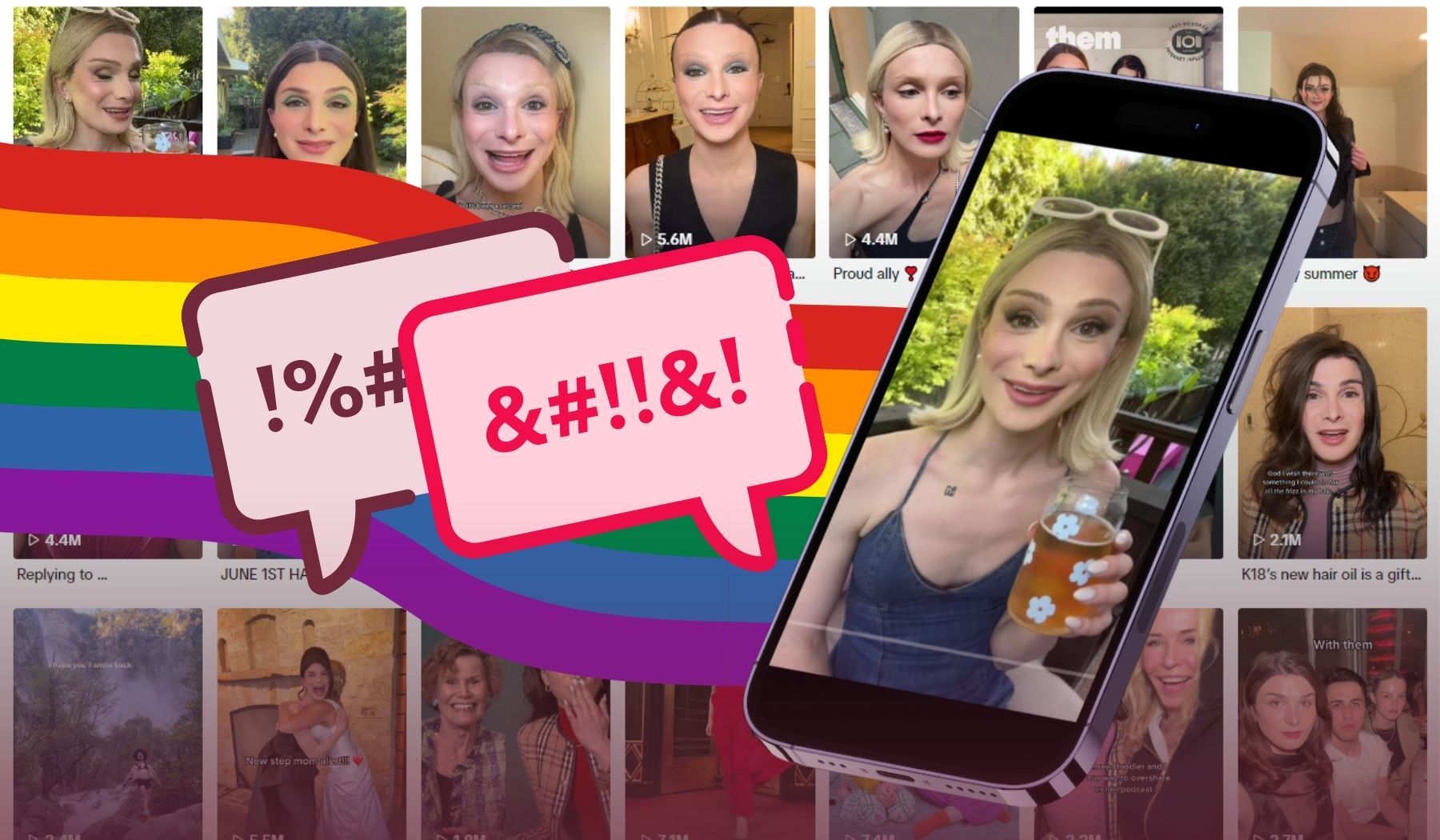TL;DR: TikTok star Dylan Mulvaney says Bud Light hasn't even reached out to see if she's OK after an ad campaign sparked intense anti-LGBTQIA+ hate. It's time for the ad industry to have a wake-up call or face regulatory oversight to protect influencers and creatives - just like the UK broadcast industry has.
Dylan Mulvaney, the transgender influencer who made her fame on TikTok, released a heartfelt video this week.
In it she said Bud Light failed to stand by her after their branded content partnership faced a coordinated right-wing backlash.
Crucially, she said that since the fiasco Bud Light hasn't reached out to her. Speaking to her fans on TikTok, she spoke about being scared of leaving her house since the furore.
The morning after Mulvaney's video, the CEO of Bud Light parent company Anheuser-Busch, Brendan Whitworth, gave his first interview on the saga in an appearance on CBS Mornings.
He attempted to refocus the narrative on supporting “American workers”, as a boycott from both anti-trans activist and the LGBTQIA+ community continues to affect the brand.
The interview failed to address the brand’s abandonment of Mulvaney - a clear failure in the eyes of many in the ad industry. Marty Davies of LGBTQIA+ ad advocacy group Outvertising told QueerAF the way Bud Light abandoned Mulvaney was "reprehensible".
"It is deeply distressing to hear Dylan Mulvaney speak about being failed by Bud Light. The advertising and marketing community must do better. The advertising and marketing industry needs to defend our trans+ talent. A robust response to backlash, doubling down on inclusive values, is a critical part of any campaign involving LGBTQIA+ people. To abandon talent in this way, at a time of crisis, is reprehensible and does not align with the meaning of true allyship. They deserve support and protection.”
- Marty Davies, co-CEO of Outvertising
A statement from Anheuser-Busch since Mulvaney’s video said they were committed to "programs and partnerships", including those with the LGBTQIA+ community.
Dylan Mulvaney speaks out over Bud Light abandoning her
Mulvaney's video addressing the furore is a heartbreaking watch.
The short and succinct video delivers just a hint of the difficult time the trans star has had. She covers deeply emotional issues and the hate she has faced since the co-ordinated anti-trans campaign - NBC
She speaks about how scared she feels just leaving the house, describing the level of harassment as "more than I could have ever imagined" - The Guardian
Mulvaney said she was initially scared to address the backlash - worried that would only make the situation worse. Apologising for that silence, she said she spoke out because "if this is my experience, from a very privileged perspective, know that it is much, much worse for other trans people."
Mulvaney said the company's response "gives customers permission to be as transphobic and hateful as they want."
"For a company to hire a trans person and then not publicly stand by them is worse, in my opinion, than not hiring a trans person at all. For months now I’ve been scared to leave my house, I’ve been ridiculed in public, I’ve been followed, and I have felt a loneliness that I wouldn’t wish on anyone."
- Dylan Mulvaney, TikTok video
Analysis: Brands must do better to protect LGBTQIA+ talent they work with
Preparing for any potential anti-LGBTQIA+ prejudice is crucial to any Pride or queer campaign - no matter what time of the year. That planning should include what that means for all stakeholders.
This story exposes a wider issue in the ad industry.
Advertising, which used to be managed by teams and agencies, is now much more in the hands of individual influencers.
Unlike those large teams with backing and institutional support, influencers are used and thrown away by brands. They're left to fend for themselves when there is even a whiff of pushback.
This behaviour is already, clearly, immoral. But when you consider the political context of this Pride Month - a media obsessed with anti-trans clickbait and a persistent attack on our community - it's far worse.
LGBTQIA+ creatives are made vulnerable by this extreme context, and by having to navigate a toxic media sphere that's all too ready to drop them at the slightest hint of trouble.
Broadcast TV had to wake up to these dangers in the wake of the Jeremy Kyle and Caroline Flack scandals. It is now regulated and required to look after on-screen talent and contributors.
It’s time for the ad industry to have a similar wake-up call or face statutory regulations to protect people too.

Pride Month is over. Feeling exhausted too?
We fought hard for attention all month with the big players who, at best, deliver mediocre coverage of our lives.
But that's over now. And while they go quiet - we're ready to do what we do best, all year round — filling in the gap of media coverage that misrepresents and fails us.
Our approach to creating quality queer journalism is unparalleled by anyone in the media, including in the gay press.
With every piece of content, QueerAF creates. With every news story, podcast and think piece we develop and support queer creatives to build media careers.
With our help, they are changing the media.
Now Pride Month is over, and the temporary spotlight on our lives fades, we need your support more than ever.
If a few more people upgrade to paid, we'll be able to grow our year-round output challenging misinformation, help more queer creatives and do even more behind-the-scenes work lobbying media organisations to change representation of our lives.
Being QueerAF is for life, not just for Pride Month.











